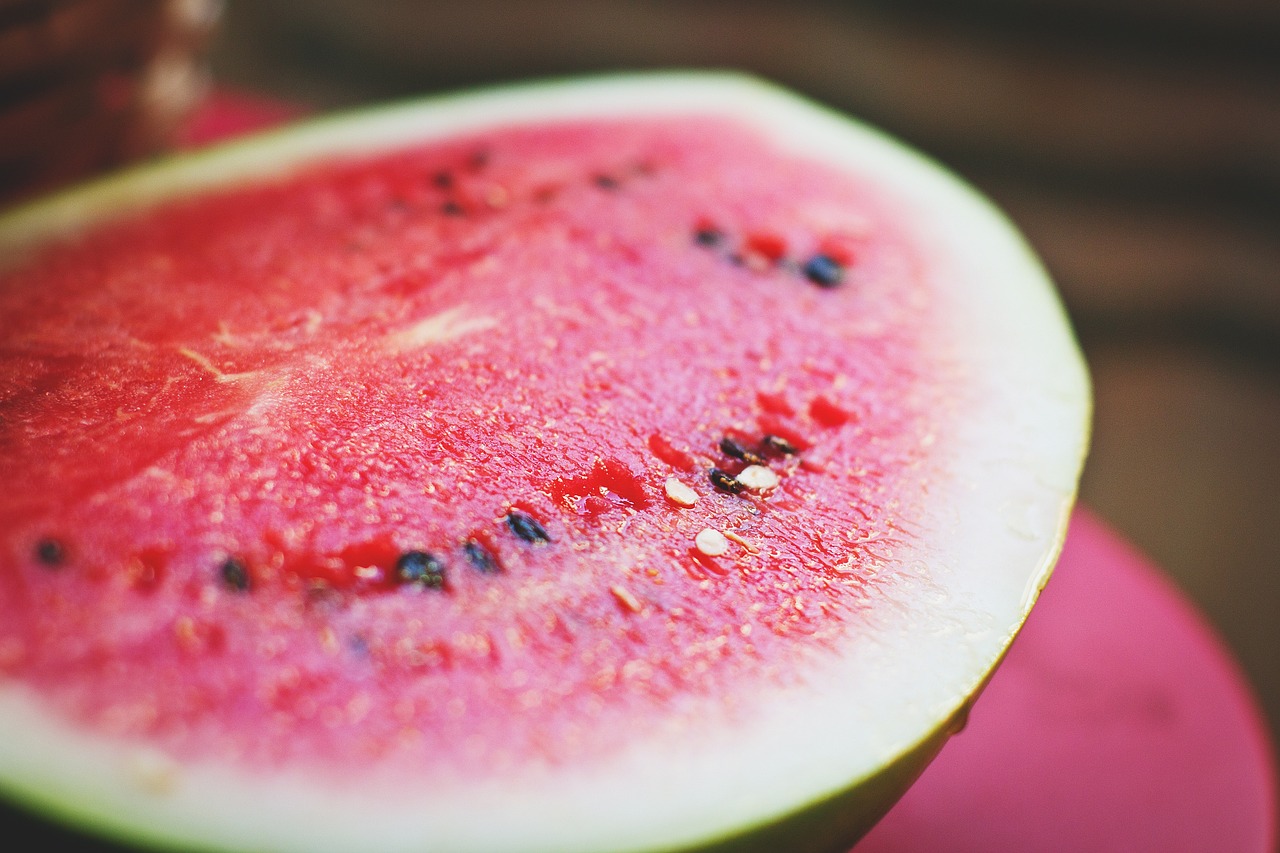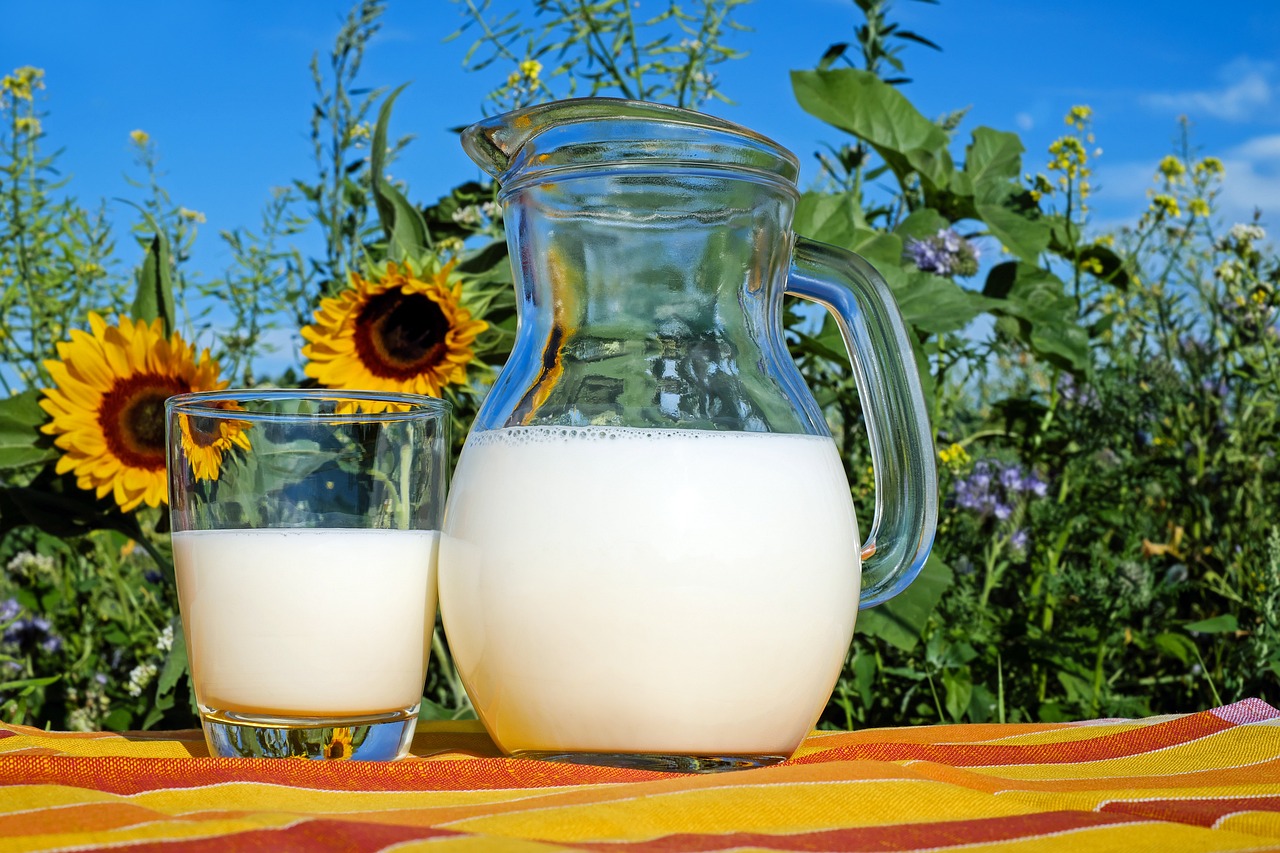The Importance of Nutrition for Post-Surgery Recovery
When it comes to recovering from surgery, many people think about rest and medication. However, nutrition plays a crucial role that can’t be overlooked. Imagine your body as a car; after a crash, you wouldn’t just fix the exterior and leave the engine untouched, right? The same principle applies to your body. Proper dietary choices can significantly enhance your healing process, reduce complications, and improve overall outcomes. In this article, we’ll dive into the essential nutrients that your body craves post-surgery and how to ensure you’re giving it the best chance to recover.
Nutrition isn’t just about eating well; it’s about understanding what your body needs to repair itself effectively. After surgery, your body is in a state of healing, which requires a surge of nutrients to facilitate tissue repair, combat inflammation, and restore strength. Think of it as a rebuilding phase where every nutrient acts as a building block. For instance, protein is a powerhouse nutrient pivotal for tissue regeneration, while vitamins and minerals act as the support crew, ensuring everything runs smoothly. Let’s explore how these elements contribute to a successful recovery.
First off, let’s talk about protein. It’s not just for bodybuilders; it’s essential for everyone, especially after surgery. Your body uses protein to repair tissues and build muscle. Without adequate protein, your recovery could be delayed, and you might even lose muscle mass. So, what are some good sources of protein? Lean meats, fish, eggs, dairy products, and plant-based options like beans and lentils are all fantastic choices. By incorporating these into your meals, you’re essentially fueling your body’s healing engine.
Next up are vitamins and minerals. These micronutrients may seem small, but they pack a punch when it comes to recovery. For example, vitamin C is vital for collagen production, which is necessary for healing wounds. Zinc plays a significant role in immune function and can help prevent infections. Incorporating a variety of colorful fruits and vegetables into your diet will ensure you’re getting a broad spectrum of these essential nutrients. Think of your plate as a palette; the more colors, the more nutrients!
Protein is essential for tissue repair and regeneration post-surgery. Understanding the types and sources of protein can help patients optimize their recovery process and support muscle maintenance.
Vitamins and minerals are crucial for various bodily functions during recovery. This section highlights key nutrients that aid in healing and how to incorporate them into a post-surgery diet.
Staying hydrated is often underestimated in recovery. This subheading discusses the importance of fluid intake and its impact on healing and overall well-being after surgery.
Electrolytes play a significant role in maintaining fluid balance and muscle function. This section covers the best sources of electrolytes and their importance in the recovery phase.
This subheading provides guidelines for optimal water intake post-surgery, emphasizing how hydration supports recovery and helps prevent complications.
Patients may face malnutrition risks following surgery. This section outlines common causes of malnutrition in post-operative patients and strategies to avoid it for a smoother recovery.
Making informed dietary choices can significantly influence recovery outcomes. This section explores how specific foods can promote healing and improve overall health post-surgery.
This subheading provides a list of nutrient-dense foods that should be included in a post-surgery diet to enhance recovery and support healing processes.
Certain foods can hinder recovery and should be avoided. This section discusses which foods to steer clear of and their potential negative effects on the healing process.
- What should I eat after surgery? Focus on a balanced diet rich in protein, vitamins, and minerals.
- How important is hydration? Staying hydrated is crucial for recovery; it aids in healing and prevents complications.
- Can I take supplements? Consult your doctor before adding any supplements to your diet post-surgery.
- What foods should I avoid? Steer clear of processed foods, excessive sugars, and alcohol, as they can hinder recovery.

The Role of Protein in Healing
When it comes to post-surgery recovery, protein is your best friend. Imagine your body as a construction site; after surgery, the site has been damaged and needs serious repairs. Protein acts like the building materials—essential for rebuilding tissues and regenerating cells. Without adequate protein intake, your body might struggle to heal efficiently, prolonging recovery and increasing the risk of complications.
So, what exactly does protein do? It plays a pivotal role in tissue repair and muscle maintenance. After surgery, your body enters a state of heightened demand for protein to help repair damaged tissues and promote healing. This is especially crucial for surgical wounds, where collagen, a protein, is needed for the formation of new tissue. If you skimp on protein, you might find yourself feeling fatigued and weak, which can set back your recovery.
There are various types of proteins, and knowing the best sources can help you optimize your recovery process. Animal-based proteins, such as chicken, fish, eggs, and dairy, are considered complete proteins because they contain all nine essential amino acids your body needs. On the other hand, plant-based proteins, like beans, lentils, nuts, and seeds, can also be beneficial, but they may require combining different sources to ensure you get a complete amino acid profile. Here’s a quick comparison of some excellent protein sources:
| Protein Source | Type | Protein Content (per 100g) |
|---|---|---|
| Chicken Breast | Animal | 31g |
| Salmon | Animal | 25g |
| Eggs | Animal | 13g |
| Quinoa | Plant | 14g |
| Lentils | Plant | 9g |
It’s also important to spread your protein intake throughout the day rather than loading up in one meal. This ensures a steady supply of amino acids for your body to use as it heals. Think of it as fueling a car; you wouldn’t just pour all the gas in at once and expect it to run smoothly, right? Regular, balanced meals will keep your recovery process on track.
In conclusion, prioritizing protein in your post-surgery diet is not just a suggestion; it's a necessity. Whether you opt for animal or plant-based sources, ensuring you meet your protein needs can significantly enhance your recovery experience. So, next time you sit down for a meal, think about how you can incorporate more of this essential nutrient into your diet. Your body will thank you!

When it comes to recovering from surgery, vitamins and minerals are your unsung heroes. These essential nutrients play a pivotal role in various bodily functions that are crucial for healing. Think of them as the building blocks that help your body repair itself after the trauma of surgery. Just like a house needs strong materials to be rebuilt after a storm, your body requires a steady supply of vitamins and minerals to bounce back effectively.
One of the most important vitamins for recovery is Vitamin C. This powerhouse nutrient is vital for collagen synthesis, which is essential for wound healing. Without enough Vitamin C, your body may struggle to form new tissue, leading to prolonged recovery times. Foods rich in Vitamin C include oranges, strawberries, kiwi, and bell peppers. Incorporating these into your diet can significantly enhance your healing process.
Another critical nutrient is Vitamin D, which not only supports bone health but also plays a role in immune function. After surgery, your immune system needs all the help it can get to fend off infections. You can boost your Vitamin D levels through sunlight exposure or by consuming fortified foods, fatty fish, and egg yolks.
Don’t forget about the B vitamins! These vitamins, particularly B6 and B12, are important for energy production and red blood cell formation, which can be especially beneficial during recovery. Foods like chicken, fish, eggs, and whole grains are excellent sources of B vitamins that can help you regain your strength.
Minerals are equally important in the recovery process. For instance, zinc plays a crucial role in cell division and protein synthesis, both of which are necessary for healing. A deficiency in zinc can slow down recovery and lead to complications. Foods high in zinc include meat, shellfish, legumes, seeds, and nuts. It’s essential to ensure you’re getting enough of this mineral in your post-surgery diet.
Moreover, iron is another mineral that shouldn't be overlooked. After surgery, you may experience blood loss, which can lead to anemia if iron levels are not replenished. Incorporating iron-rich foods such as red meat, spinach, lentils, and fortified cereals can help maintain your energy levels and support recovery.
To summarize, a well-balanced post-surgery diet rich in vitamins and minerals can significantly impact your recovery journey. Here’s a quick overview of key vitamins and minerals along with their food sources:
| Nutrient | Role in Recovery | Food Sources |
|---|---|---|
| Vitamin C | Collagen synthesis, wound healing | Oranges, strawberries, bell peppers |
| Vitamin D | Bone health, immune function | Fatty fish, fortified foods, sunlight |
| B Vitamins | Energy production, red blood cell formation | Chicken, fish, eggs, whole grains |
| Zinc | Cell division, protein synthesis | Meat, shellfish, legumes, seeds |
| Iron | Prevents anemia, maintains energy | Red meat, spinach, lentils |
Incorporating these nutrients into your diet can make a world of difference in how quickly and effectively you recover. Remember, your body is working hard to heal, so give it the support it needs to get back on its feet!
- What are the best sources of Vitamin C? Citrus fruits, strawberries, kiwi, and bell peppers are excellent sources.
- How can I increase my Vitamin D levels? Spend time in sunlight, eat fatty fish, or consume fortified foods.
- What foods should I avoid after surgery? It's best to avoid processed foods, high-sugar items, and excessive caffeine.
- How much water should I drink post-surgery? Aim for at least 8-10 cups, but consult your doctor for personalized advice.
When it comes to post-surgery recovery, many people focus on the big players like protein and vitamins, but hydration is often the unsung hero. Imagine trying to drive a car without oil; it might run for a while, but eventually, it’s going to break down. Your body is no different. After surgery, your body needs water to function optimally, helping to flush out toxins, transport nutrients, and maintain cellular health. Staying properly hydrated can be the difference between a smooth recovery and a bumpy ride.
So, why is hydration so critical? First off, water is essential for healing. It plays a crucial role in the metabolic processes that repair tissue and regenerate cells. Without adequate fluid intake, these processes can slow down, leading to prolonged recovery times. Additionally, hydration helps to regulate body temperature, which is particularly important after surgery when your body is working hard to heal. A well-hydrated body is like a well-oiled machine, running smoothly and efficiently.
Moreover, hydration supports the immune system. After surgery, your body is vulnerable, and a strong immune response is necessary to prevent infections. Drinking enough fluids can help bolster your immune system, keeping it ready to fight off any potential threats. Think of water as your body’s personal bodyguard, standing watch while you recover.
However, it’s not just about drinking water. You also need to consider the quality of the fluids you consume. While plain water is excellent, incorporating hydrating foods can also contribute to your fluid intake. Foods such as cucumbers, watermelon, and oranges are not only refreshing but also packed with water. Here’s a quick look at some hydrating foods:
| Food | Water Content (%) |
|---|---|
| Cucumber | 95 |
| Watermelon | 92 |
| Strawberries | 91 |
| Oranges | 86 |
In conclusion, never underestimate the power of hydration in your recovery journey. It’s not just about quenching your thirst; it’s about providing your body with the necessary tools it needs to heal effectively. Aim for at least 8-10 cups of fluids a day, and remember to listen to your body. If you feel thirsty, don’t ignore it! Hydration is a vital piece of the puzzle, ensuring you recover faster and feel better.
- How much water should I drink after surgery? It’s generally recommended to drink at least 8-10 cups of fluids a day, but consult your healthcare provider for personalized advice.
- Can I get enough hydration from food? Yes! Many fruits and vegetables have high water content and can contribute to your overall hydration.
- What are signs of dehydration? Common signs include dry mouth, fatigue, dizziness, and dark urine. If you experience these, increase your fluid intake.
- Are sports drinks beneficial for hydration? They can be beneficial, especially if you’re losing electrolytes, but be cautious of added sugars. Water is usually the best choice.
When we think about recovery after surgery, we often focus on things like protein and vitamins, but one crucial aspect that can’t be overlooked is electrolytes. These tiny minerals play a gigantic role in our body, acting like the unsung heroes of recovery. Electrolytes, which include sodium, potassium, calcium, and magnesium, are essential for maintaining fluid balance, regulating nerve function, and ensuring proper muscle contractions. After surgery, your body is in a state of healing, and the demand for these minerals increases significantly.
So, why are electrolytes so important? Imagine your body as a well-oiled machine. Just like a car needs oil to run smoothly, your body requires electrolytes to function properly. They help in transmitting electrical signals in your body, which is vital for muscle movement and communication between your brain and various organs. Without adequate levels of electrolytes, you may experience muscle cramps, fatigue, and even complications in the healing process.
One of the best ways to replenish electrolytes is through food and beverages. Here’s a quick breakdown of some common electrolytes and their sources:
| Electrolyte | Sources |
|---|---|
| Sodium | Table salt, soups, pickles |
| Potassium | Bananas, oranges, spinach, potatoes |
| Calcium | Dairy products, leafy greens, fortified foods |
| Magnesium | Nuts, seeds, whole grains, legumes |
Incorporating these foods into your post-surgery diet can help ensure that your body has the necessary tools for recovery. It’s also important to note that hydration plays a key role in the balance of electrolytes. When you’re dehydrated, the concentration of electrolytes can become unbalanced, leading to potential complications. Therefore, drinking fluids that contain electrolytes, such as sports drinks or electrolyte-infused water, can be beneficial.
In summary, electrolytes are not just a buzzword in the health community; they are vital for a smooth recovery post-surgery. By paying attention to your electrolyte intake, you can enhance your body’s ability to heal, maintain energy levels, and avoid unpleasant side effects. Remember, your body is like a garden; it needs the right nutrients to flourish after a storm. Nurturing it with the right balance of electrolytes can make all the difference in your recovery journey.
- What are electrolytes? Electrolytes are minerals in your body that carry an electric charge, essential for various bodily functions.
- How can I ensure I get enough electrolytes after surgery? Incorporate foods rich in electrolytes into your diet and consider electrolyte drinks to help replenish your levels.
- What happens if I don't get enough electrolytes? Insufficient electrolyte levels can lead to muscle cramps, fatigue, and complications in recovery.
- Are there any risks associated with electrolyte supplements? Yes, overconsumption can lead to imbalances. It's best to consult with a healthcare provider before taking supplements.
After surgery, hydration is not just a recommendation; it's a necessity. Your body has just undergone a significant event, and maintaining proper fluid levels is crucial for optimal recovery. So, how much water should you be drinking? While the "8 glasses a day" rule is a common guideline, it may not be sufficient for everyone, especially post-surgery patients. The exact amount can depend on various factors, including your age, weight, the type of surgery you had, and your overall health status.
As a general rule of thumb, a good starting point for post-surgery hydration is to aim for about half your body weight in ounces of water daily. For example, if you weigh 150 pounds, you should aim for approximately 75 ounces of water each day. However, this is just a guideline; listen to your body and adjust accordingly. If you're feeling thirsty, that's your body's way of signaling that it needs more fluids.
Additionally, keep in mind that hydration doesn't solely come from drinking water. Foods high in water content, such as fruits and vegetables, can also contribute to your daily intake. Consider incorporating items like cucumbers, watermelon, oranges, and leafy greens into your meals. These foods not only help hydrate you but also provide essential vitamins and minerals that support healing.
To make things easier, here's a simple table to guide you on daily water intake based on your weight:
| Weight (lbs) | Water Intake (ounces) |
|---|---|
| 100 | 50 |
| 120 | 60 |
| 140 | 70 |
| 160 | 80 |
| 180 | 90 |
Remember, hydration is not just about drinking water; it’s also about maintaining a balance of electrolytes. Electrolytes help regulate fluid balance in your body and are vital for muscle function and overall health. As you increase your water intake, consider incorporating electrolyte-rich drinks or foods, especially if you’re experiencing any signs of dehydration.
In conclusion, staying adequately hydrated post-surgery can significantly influence your recovery. Make it a habit to keep a water bottle handy, set reminders to drink, and pay attention to your body's cues. Your healing journey will thank you!
- How much water should I drink after surgery? Aim for about half your body weight in ounces of water daily, adjusting based on your needs.
- Can I drink other beverages instead of water? While water is the best option, you can also consume herbal teas and electrolyte drinks in moderation.
- What are signs of dehydration? Common signs include dry mouth, fatigue, dizziness, and dark-colored urine.
- Are there foods that help with hydration? Yes! Fruits and vegetables like cucumbers, oranges, and watermelon are great for hydration.
After undergoing surgery, many patients find themselves at a crossroads where the road to recovery can be significantly influenced by their nutritional choices. Unfortunately, malnutrition is a common risk that can creep in during this vulnerable time. It’s like trying to build a house without a solid foundation; without the right nutrients, your body struggles to heal effectively. So, what exactly leads to malnutrition after surgery?
First and foremost, the body's increased demand for nutrients during recovery can outpace what a patient consumes. Surgical procedures often lead to a higher metabolic rate; this means your body is burning through calories and nutrients faster than usual. If patients aren't aware of this heightened need, they might not eat enough, leading to deficiencies. Additionally, factors such as pain, nausea, and changes in appetite can further complicate a patient's ability to consume adequate nutrition.
Moreover, some patients may have pre-existing conditions that can exacerbate the risk of malnutrition. For instance, individuals with diabetes or gastrointestinal disorders may already have compromised nutrient absorption. Post-surgery, these conditions can make it even harder for the body to receive the nutrients it desperately needs to heal. It’s like trying to fill a bucket with holes; no matter how much water you pour in, it just keeps leaking out.
To better understand the common causes of malnutrition after surgery, consider the following:
- Increased Nutritional Needs: The body requires more protein, vitamins, and minerals to repair tissues and recover.
- Pain and Discomfort: Post-operative pain can deter patients from eating or drinking enough.
- Pre-existing Health Conditions: Conditions that affect digestion or absorption can hinder nutrient intake.
- Medication Side Effects: Some medications may cause nausea or appetite loss.
So, how can patients combat these risks? Awareness is the first step. Keeping a close eye on dietary intake and making adjustments is crucial. Patients should aim to incorporate nutrient-dense foods into their meals, focusing on high-protein options, fruits, and vegetables rich in vitamins and minerals. Consulting with a healthcare provider or a registered dietitian can also provide tailored advice to ensure that nutritional needs are met.
In summary, the risks of malnutrition after surgery should not be taken lightly. By understanding the factors at play and taking proactive steps, patients can significantly enhance their healing process. Remember, nutrition is not just about filling your belly; it’s about fueling your recovery!
Q: How can I tell if I'm malnourished after surgery?
A: Signs of malnutrition can include unintended weight loss, fatigue, weakness, and a weakened immune response. If you notice any of these symptoms, it’s important to consult with your healthcare provider.
Q: What should I eat to avoid malnutrition?
A: Focus on a balanced diet rich in protein, vitamins, and minerals. Foods like lean meats, dairy products, nuts, seeds, fruits, and vegetables are excellent choices.
Q: Is it necessary to take supplements after surgery?
A: While whole foods are the best source of nutrients, some patients may benefit from supplements, especially if they are unable to meet their nutritional needs through diet alone. Always discuss this with your doctor.

When it comes to post-surgery recovery, the food you eat can be a game changer. Imagine your body as a high-performance machine; just like a car needs the right fuel to run smoothly, your body requires nutrient-dense foods to heal effectively. After surgery, your body is in a state of repair, and the right dietary choices can significantly influence the speed and quality of your recovery. But what exactly does that mean? Well, let’s dive into how specific foods can either boost your healing process or, conversely, hold you back.
First off, it’s essential to understand that your body has increased nutritional needs after surgery. This is where protein comes into play. High-protein foods like chicken, fish, beans, and legumes should become staples in your diet. Why? Because protein is the building block of tissues, and your body needs it to repair damaged cells and regenerate new ones. Think of protein as the construction crew that shows up to fix your house after a storm—without them, the repairs simply can't happen.
But it’s not just protein that you need to focus on. Vitamins and minerals also play a crucial role in recovery. For instance, vitamin C is vital for collagen formation, which is essential for wound healing. Foods rich in vitamin C, such as oranges, strawberries, and bell peppers, should be included in your meals. Similarly, zinc is another key player that helps in immune function and wound healing. You can find zinc in foods like nuts, seeds, and whole grains. Integrating these foods into your post-surgery diet can significantly enhance your body's healing capabilities.
Now, let’s not forget about hydration! Many people underestimate the importance of drinking enough fluids, but staying hydrated is like oiling the gears of your recovery machine. Water helps transport nutrients to your cells and flush out toxins, making it essential for a smooth recovery process. A good rule of thumb is to aim for at least 8-10 glasses of water a day, but this can vary depending on individual needs and activity levels.
On the flip side, certain dietary choices can hinder your recovery. For example, processed foods high in sugar and unhealthy fats may seem tempting, but they can lead to inflammation and slow down the healing process. Think of these foods as the weeds in your garden; they can choke out the healthy plants (nutrients) you’re trying to cultivate. Therefore, it’s crucial to steer clear of sugary snacks, fried foods, and excessive caffeine during your recovery phase.
To sum it up, making informed dietary choices can dramatically impact your recovery after surgery. By focusing on nutrient-dense foods, staying hydrated, and avoiding harmful substances, you set yourself up for a smoother and quicker healing process. Remember, your body is working hard to recover, so give it the support it needs to get back to its best!
- What are the best foods to eat after surgery? Focus on high-protein foods, fruits and vegetables rich in vitamins, and whole grains.
- How much water should I drink after surgery? Aim for at least 8-10 glasses a day, but consult your doctor for personalized recommendations.
- Are there foods I should avoid? Yes, avoid processed foods, sugary snacks, and excessive caffeine to promote healing.
- Can supplements help with recovery? In some cases, supplements can be beneficial, but it’s best to discuss this with your healthcare provider.
When it comes to post-surgery recovery, choosing the right foods can make a world of difference. Imagine your body as a car; just like a car requires high-quality fuel to run smoothly, your body needs nutrient-rich foods to heal effectively. So, what should you include in your diet to turbocharge your recovery? Let's dive in!
First and foremost, protein is your best friend. It’s the building block of your body, essential for repairing tissues and building muscle. After surgery, your protein needs increase significantly. Aim for sources like chicken, fish, eggs, beans, and legumes. These foods not only provide the necessary amino acids but also support your immune system, helping you fend off infections.
Next on the list are fruits and vegetables. They are packed with vitamins, minerals, and antioxidants that play a vital role in healing. Think of them as nature's medicine. For instance, leafy greens like spinach and kale are rich in vitamin K, which is crucial for blood clotting and wound healing. Citrus fruits, on the other hand, are loaded with vitamin C, vital for collagen production and tissue repair. Try to fill half your plate with colorful fruits and veggies at every meal to ensure you’re getting a wide range of nutrients.
Don't forget about whole grains. Foods like quinoa, brown rice, and whole-grain bread not only provide energy but also contain fiber, which is important for digestive health. After surgery, your body may slow down a bit, and fiber can help keep your digestive system running smoothly. Plus, whole grains release energy slowly, keeping you fueled throughout the day.
Another key player in your recovery diet is healthy fats. Foods like avocados, nuts, seeds, and olive oil are not just tasty; they also provide essential fatty acids that help reduce inflammation and promote healing. Omega-3 fatty acids, found in fatty fish like salmon, can be particularly beneficial in this regard. Including these healthy fats in your meals can help your body recover faster and feel better.
Finally, don't underestimate the power of hydration. Water is crucial for every bodily function, including healing. It helps transport nutrients to cells, removes waste, and keeps your body functioning optimally. Aim for at least 8-10 glasses of water a day, and consider incorporating hydrating foods like cucumbers, watermelon, and soups into your diet.
To summarize, here’s a quick table of foods to include in your post-surgery diet:
| Food Group | Examples | Benefits |
|---|---|---|
| Protein | Chicken, fish, eggs, beans | Tissue repair, immune support |
| Fruits & Vegetables | Spinach, citrus fruits, berries | Vitamins, antioxidants, collagen production |
| Whole Grains | Quinoa, brown rice, whole-grain bread | Energy, digestive health |
| Healthy Fats | Avocados, nuts, olive oil | Reduce inflammation, promote healing |
| Hydration | Water, soups, hydrating fruits | Transport nutrients, remove waste |
Incorporating these foods into your post-surgery diet can create a solid foundation for your recovery journey. Remember, your body is working hard to heal, and by fueling it with the right nutrients, you can help speed up the process and feel your best!
Q: How soon after surgery should I start focusing on my diet?
A: It's important to start focusing on your diet as soon as you're able to eat solid foods again. Consult with your healthcare provider for personalized advice.
Q: Can I take supplements instead of eating whole foods?
A: While supplements can be beneficial, they should not replace whole foods. Whole foods provide a complex array of nutrients that work together in ways that supplements cannot replicate.
Q: Are there any foods I should avoid after surgery?
A: Yes, it's best to avoid processed foods, sugary snacks, and excessive caffeine, as these can hinder your recovery. Focus on whole, nutrient-dense foods instead.
When you're on the road to recovery after surgery, what you eat can make a world of difference. Just like a car needs the right fuel to run smoothly, your body requires proper nutrition to heal effectively. Unfortunately, not all foods are created equal, and some can actually hinder your recovery process. So, what should you steer clear of? Let's dive into the foods that can sabotage your healing journey.
First and foremost, processed foods are a big no-no during recovery. These items are often loaded with unhealthy fats, sugars, and preservatives that can lead to inflammation and slow down the healing process. Think about it: when your body is trying to repair itself, it doesn’t need added stress from artificial ingredients. Instead of reaching for that pre-packaged meal, opt for fresh, whole foods that nourish your body.
Another category to avoid is high-sugar foods. While a sweet treat might seem tempting, sugar can actually suppress your immune system, making it harder for your body to fight off infections. This is particularly crucial after surgery when your body is in a vulnerable state. Instead of sugary snacks, consider satisfying your sweet tooth with fruits that provide natural sugars along with essential vitamins and minerals.
Additionally, alcohol is a significant risk factor that can interfere with your recovery. Not only can it dehydrate you, but it can also interact negatively with medications prescribed post-surgery. Alcohol can impair your body's ability to heal by affecting protein synthesis and delaying recovery times. So, it’s wise to avoid alcoholic beverages until your healthcare provider gives you the green light.
Furthermore, foods high in saturated and trans fats should be limited. These fats can contribute to inflammation and may hinder the healing process. Instead of fried foods or fatty cuts of meat, consider incorporating lean proteins and healthy fats, such as those found in avocados and nuts, which can provide the energy your body needs without the negative effects.
Lastly, be cautious with caffeinated beverages. While a cup of coffee can be a comforting ritual, excessive caffeine can lead to dehydration, which is detrimental during recovery. If you love your morning brew, try to moderate your intake and balance it with plenty of water to stay hydrated.
In summary, avoiding processed foods, high-sugar snacks, alcohol, unhealthy fats, and excessive caffeine can significantly enhance your recovery experience. By making conscious dietary choices, you’re setting yourself up for a smoother and more effective healing process. Remember, your body is your home, and treating it well during this critical time is essential for a successful recovery.
- What are the best foods to eat after surgery? Focus on nutrient-dense options like lean proteins, whole grains, fruits, and vegetables to support healing.
- How long should I avoid certain foods after surgery? It's advisable to consult your healthcare provider for personalized recommendations, but generally, avoiding harmful foods for at least a few weeks is beneficial.
- Can I drink alcohol after surgery? It's best to avoid alcohol until your doctor advises it's safe, as it can interfere with healing and medication.
Frequently Asked Questions
- Why is nutrition important for post-surgery recovery?
Nutrition plays a vital role in recovery after surgery. Proper dietary choices can enhance healing, reduce complications, and improve overall outcomes. Think of your body as a car; just like a car needs the right fuel to run smoothly, your body needs the right nutrients to heal effectively.
- What role does protein play in the healing process?
Protein is essential for tissue repair and regeneration. It helps rebuild muscles and tissues damaged during surgery. Including high-quality protein sources like lean meats, fish, eggs, and legumes in your diet can significantly boost your recovery.
- Which vitamins and minerals should I focus on after surgery?
Key vitamins and minerals, such as Vitamin C, Vitamin D, Zinc, and Iron, are crucial for healing. They support immune function and help your body recover more efficiently. Incorporating a variety of fruits, vegetables, nuts, and whole grains can ensure you get these essential nutrients.
- How important is hydration during recovery?
Staying hydrated is often overlooked but is incredibly important for recovery. Proper fluid intake helps maintain optimal bodily functions, aids in nutrient transport, and can prevent complications. Think of hydration as the oil that keeps your engine running smoothly.
- What are electrolytes, and why do they matter?
Electrolytes are minerals that help maintain fluid balance and muscle function. After surgery, replenishing electrolytes through foods like bananas, spinach, and nuts can support recovery and prevent cramps or fatigue.
- How much water should I drink after surgery?
It’s generally recommended to drink at least 8-10 glasses of water daily, but this can vary based on individual needs and activity levels. Always listen to your body; if you feel thirsty, it’s a sign you need to hydrate.
- What are the risks of malnutrition after surgery?
Malnutrition can lead to delayed healing, increased risk of infections, and longer recovery times. Common causes include reduced appetite, dietary restrictions, or difficulty eating. Being mindful of your nutritional intake can help mitigate these risks.
- What dietary choices can positively impact recovery?
Making informed dietary choices can significantly enhance your recovery. Focus on nutrient-dense foods like fruits, vegetables, whole grains, lean proteins, and healthy fats. These foods provide the building blocks your body needs to heal.
- Are there foods I should avoid during recovery?
Certain foods can hinder your recovery, such as processed foods, sugary snacks, and excessive caffeine or alcohol. These can lead to inflammation and slow down the healing process. Opting for whole, unprocessed foods is a better choice.



















